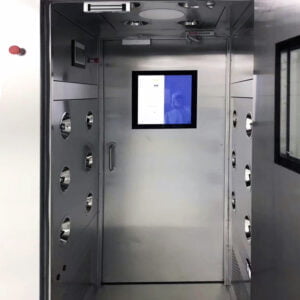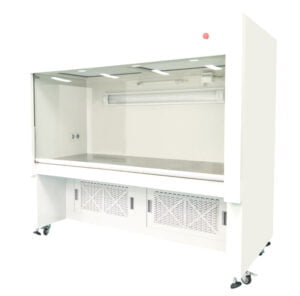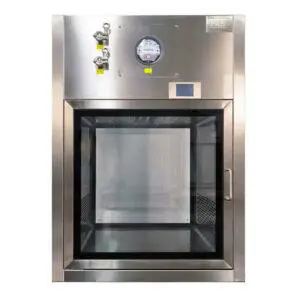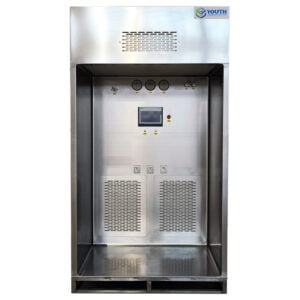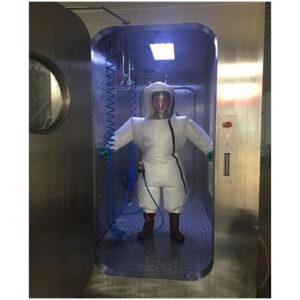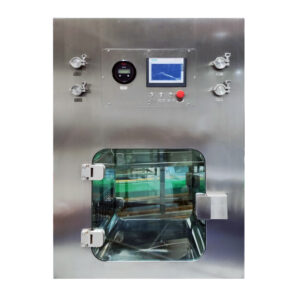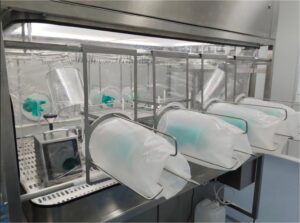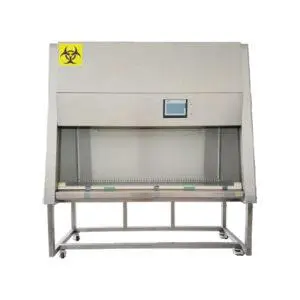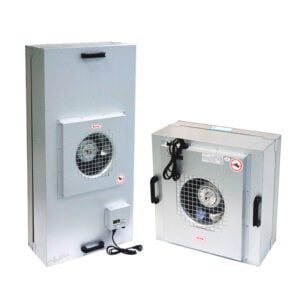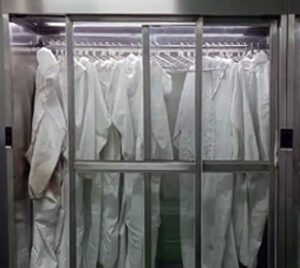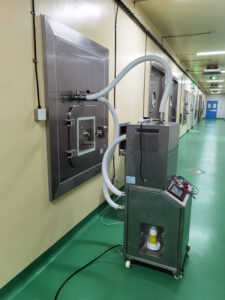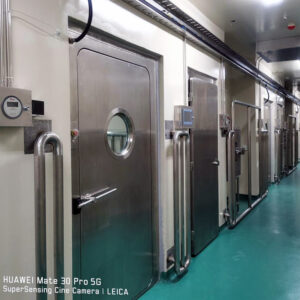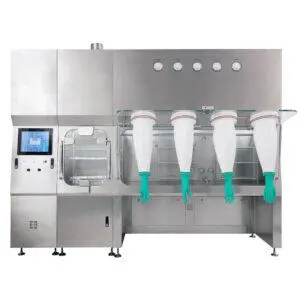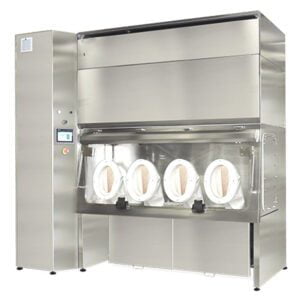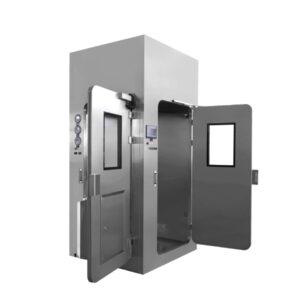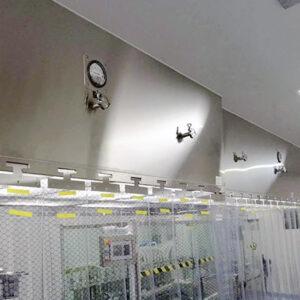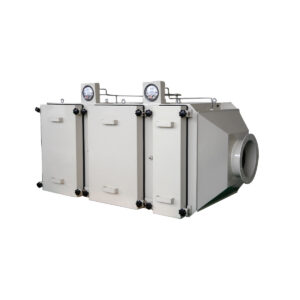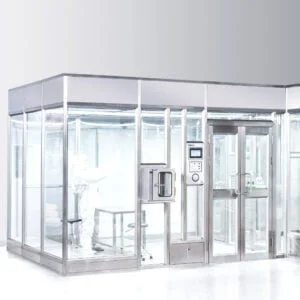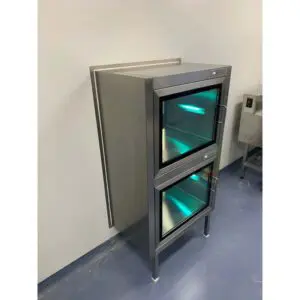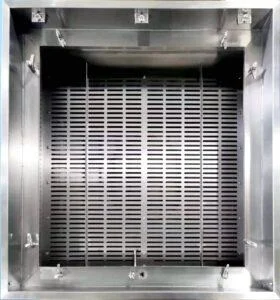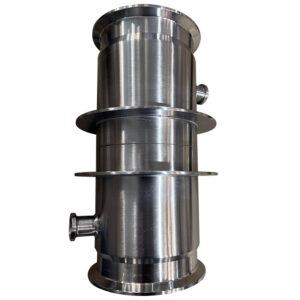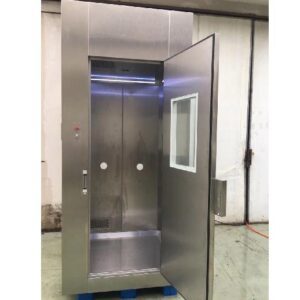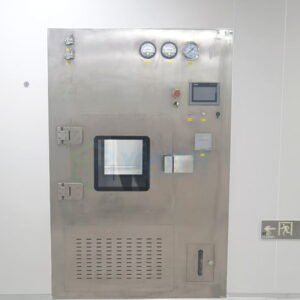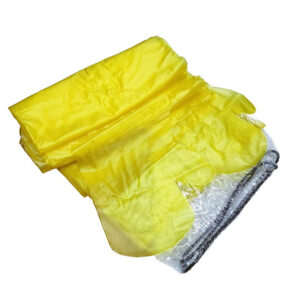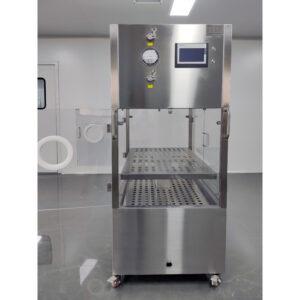In the fast-paced world of pharmaceutical and biotechnology manufacturing, maintaining sterile conditions is paramount. Mobile Laminar Air Flow (LAF) carts have emerged as a crucial tool in aseptic manufacturing, providing flexible and reliable support for various processes. These versatile units play a pivotal role in ensuring product quality and safety while enhancing operational efficiency.
As the demand for sterile manufacturing environments continues to grow, understanding the key uses of mobile LAF carts becomes increasingly important. From isolating critical processes to facilitating aseptic transfers, these carts offer a range of applications that cater to the stringent requirements of modern pharmaceutical production.
In this comprehensive exploration, we'll delve into the essential functions and benefits of mobile LAF carts in aseptic manufacturing. We'll examine how these units contribute to maintaining sterility, improving workflow, and meeting regulatory standards. By understanding the key uses of mobile LAF carts, manufacturers can optimize their aseptic processes and stay ahead in an ever-evolving industry.
Mobile LAF carts are indispensable tools in aseptic manufacturing, providing localized clean air environments that enhance product protection and process flexibility.
How do mobile LAF carts maintain sterility in aseptic environments?
Mobile LAF carts are designed to create and maintain a sterile environment within a localized area. By utilizing High-Efficiency Particulate Air (HEPA) filters, these carts generate a continuous flow of clean air that sweeps away contaminants and creates a barrier against external particles.
The primary function of mobile LAF carts is to provide a controlled environment for critical aseptic operations. These units use unidirectional airflow to ensure that only filtered air comes into contact with sterile products or components, significantly reducing the risk of contamination.
In aseptic manufacturing, maintaining sterility is crucial throughout the entire production process. Mobile LAF carts offer a flexible solution by allowing manufacturers to create temporary clean zones wherever they are needed. This adaptability is particularly valuable in facilities where permanent cleanroom infrastructure may be limited or where additional sterile workspaces are required on demand.
Mobile LAF carts can achieve ISO Class 5 (formerly Class 100) cleanliness levels, meeting the stringent requirements for aseptic processing areas in pharmaceutical manufacturing.
| Feature | Benefit |
|---|---|
| HEPA filtration | Removes 99.97% of particles ≥0.3 μm |
| Unidirectional airflow | Prevents contamination from surrounding air |
| Portable design | Allows for flexible placement in various locations |
The ability to maintain sterility in diverse manufacturing environments makes mobile LAF carts an essential component of YOUTH's comprehensive aseptic manufacturing support solutions.
What are the key applications of mobile LAF carts in pharmaceutical production?
Mobile LAF carts find numerous applications in pharmaceutical production, serving as versatile tools for maintaining aseptic conditions across various stages of manufacturing. These units are particularly valuable in operations that require a localized sterile environment.
One of the primary applications is in aseptic filling operations, where mobile LAF carts can provide a clean air environment for the transfer of sterile components or the filling of drug products. They are also commonly used in the preparation of sterile media, buffer solutions, and other materials required for biopharmaceutical production.
Furthermore, mobile LAF carts play a crucial role in equipment assembly and disassembly processes. They provide a clean workspace for technicians to handle sterilized components, ensuring that the integrity of sterile equipment is maintained during setup or maintenance procedures.
Mobile LAF carts are essential for creating temporary aseptic workstations, enabling manufacturers to perform critical operations in areas that may not have permanent cleanroom facilities.
| Application | Benefit |
|---|---|
| Aseptic filling | Ensures sterility during product transfer |
| Media preparation | Provides clean environment for sterile solutions |
| Equipment assembly | Maintains sterility of components during handling |
The versatility of mobile LAF carts in pharmaceutical production makes them an invaluable asset for manufacturers seeking to enhance their aseptic manufacturing support capabilities.
How do mobile LAF carts contribute to workflow optimization in aseptic manufacturing?
Mobile LAF carts play a significant role in optimizing workflow within aseptic manufacturing environments. Their portability allows for the creation of temporary clean workspaces exactly where they are needed, reducing the need for personnel and material movement between fixed cleanroom areas.
By bringing the clean environment to the point of use, mobile LAF carts minimize the risk of contamination associated with transporting materials or products through less controlled areas. This not only enhances product protection but also streamlines operations by reducing the time and complexity involved in maintaining sterility during transfers.
Additionally, mobile LAF carts can serve as staging areas for materials and equipment, allowing for efficient preparation and organization of items required for aseptic processes. This can significantly reduce setup times and improve overall operational efficiency.
The flexibility offered by mobile LAF carts enables manufacturers to adapt quickly to changing production needs, facilitating lean manufacturing practices and Just-In-Time (JIT) inventory management in aseptic environments.
| Workflow Aspect | Improvement |
|---|---|
| Material transfer | Reduced contamination risk |
| Setup time | Decreased through pre-staging |
| Production flexibility | Enhanced adaptability to changing needs |
The ability of mobile LAF carts to optimize workflow aligns perfectly with the goals of efficient aseptic manufacturing support, making them an essential tool for modern pharmaceutical production.
What role do mobile LAF carts play in regulatory compliance for aseptic manufacturing?
In the highly regulated pharmaceutical industry, compliance with Good Manufacturing Practice (GMP) standards is crucial. Mobile LAF carts play a significant role in helping manufacturers meet and exceed regulatory requirements for aseptic processing.
These units are designed to provide a controlled environment that meets or exceeds ISO Class 5 cleanliness standards, which is typically required for critical aseptic operations. By incorporating mobile LAF carts into their processes, manufacturers can demonstrate a commitment to maintaining appropriate environmental conditions for sterile product manufacturing.
Moreover, mobile LAF carts often come equipped with features that support documentation and monitoring of environmental conditions. This can include integrated particle counters, airflow sensors, and data logging capabilities, all of which contribute to the robust documentation required for regulatory compliance.
Mobile LAF carts provide a flexible solution for maintaining GMP-compliant aseptic conditions, allowing manufacturers to adapt to evolving regulatory requirements without extensive facility modifications.
| Regulatory Aspect | Mobile LAF Cart Contribution |
|---|---|
| Environmental monitoring | Integrated sensors and data logging |
| Cleanliness standards | Achieves ISO Class 5 or better |
| Process flexibility | Adapts to changing regulatory needs |
The role of mobile LAF carts in supporting regulatory compliance underscores their importance in comprehensive aseptic manufacturing support strategies.
How do mobile LAF carts enhance personnel and product safety in aseptic environments?
Safety is paramount in aseptic manufacturing, both for personnel and products. Mobile LAF carts contribute significantly to enhancing safety in these critical environments through various features and capabilities.
For personnel, mobile LAF carts provide a physical barrier between operators and potentially hazardous materials. The unidirectional airflow helps to contain any airborne particles or aerosols, reducing the risk of exposure to harmful substances. This is particularly important when handling cytotoxic drugs or other potent compounds.
In terms of product safety, mobile LAF carts create a localized clean air environment that protects sterile products from contamination. This is crucial for maintaining product integrity and ensuring patient safety, especially for parenteral medications and other sterile pharmaceutical products.
Mobile LAF carts serve as a critical line of defense against contamination, protecting both operators and products in aseptic manufacturing processes.
| Safety Aspect | Mobile LAF Cart Feature |
|---|---|
| Operator protection | Physical barrier and airflow containment |
| Product protection | HEPA-filtered environment |
| Contamination control | Unidirectional airflow |
The safety enhancements provided by mobile LAF carts make them an essential component of a comprehensive aseptic manufacturing support system, aligning with YOUTH's commitment to safety and quality in pharmaceutical production.
What advantages do mobile LAF carts offer over fixed cleanroom installations?
While fixed cleanroom installations are essential for many aspects of pharmaceutical manufacturing, mobile LAF carts offer several distinct advantages that complement and extend the capabilities of traditional cleanroom setups.
The primary advantage of mobile LAF carts is their flexibility. These units can be easily moved to different areas of a facility, allowing manufacturers to create temporary clean workspaces wherever they are needed. This flexibility is particularly valuable in multi-product facilities or during facility expansions or renovations.
Mobile LAF carts also offer cost-effectiveness, especially for smaller operations or specific processes that don't require a full cleanroom. They provide a way to achieve cleanroom-level conditions without the significant investment in fixed infrastructure.
Additionally, mobile LAF carts can be quickly deployed in emergency situations or for short-term projects, providing a rapid response to changing production needs or unexpected challenges.
Mobile LAF carts offer a scalable and adaptable solution for aseptic manufacturing, complementing fixed cleanroom installations and providing on-demand clean air environments.
| Aspect | Mobile LAF Cart Advantage |
|---|---|
| Flexibility | Easily relocated as needed |
| Cost | Lower investment than fixed cleanrooms |
| Deployment speed | Rapid setup for immediate use |
The advantages offered by mobile LAF carts make them an invaluable tool for manufacturers seeking to enhance their aseptic manufacturing support capabilities with versatile and efficient solutions.
How can mobile LAF carts be integrated into existing aseptic manufacturing processes?
Integrating mobile LAF carts into existing aseptic manufacturing processes requires careful planning and consideration of workflow, facility layout, and operational requirements. However, when implemented effectively, these units can significantly enhance the flexibility and efficiency of aseptic operations.
One common integration strategy is to use mobile LAF carts as supplementary workstations within larger cleanroom environments. This allows for the creation of additional ISO Class 5 workspaces during peak production periods or for specialized processes that require extra precautions.
Another approach is to utilize mobile LAF carts as transition zones between areas of different cleanliness classifications. This can help maintain the integrity of cleaner areas by providing an additional layer of contamination control during material or personnel transfers.
Manufacturers can also integrate mobile LAF carts into their process validation and environmental monitoring programs. These units can serve as controlled test environments for evaluating new procedures or conducting microbial challenges without risking contamination of primary production areas.
Successful integration of mobile LAF carts into aseptic manufacturing processes can lead to improved operational flexibility, enhanced contamination control, and optimized resource utilization.
| Integration Aspect | Implementation Strategy |
|---|---|
| Supplementary workstations | Deploy during peak production |
| Transition zones | Use between different cleanliness areas |
| Validation support | Utilize for process testing and challenges |
By carefully integrating mobile LAF carts, manufacturers can significantly enhance their Aseptic manufacturing support capabilities, ensuring more robust and flexible aseptic processing operations.
Conclusion
Mobile LAF carts have proven to be indispensable tools in modern aseptic manufacturing. Their ability to maintain sterility, optimize workflow, ensure regulatory compliance, and enhance safety makes them a crucial component of any comprehensive aseptic manufacturing support strategy. The flexibility and adaptability offered by these units allow pharmaceutical manufacturers to respond quickly to changing production needs while maintaining the highest standards of product quality and safety.
As the pharmaceutical industry continues to evolve, with increasing demands for flexibility, efficiency, and sterility assurance, mobile LAF carts will undoubtedly play an even more significant role in aseptic manufacturing processes. By leveraging the capabilities of these versatile units, manufacturers can stay ahead of regulatory requirements, optimize their operations, and ultimately deliver safer, higher-quality products to patients.
The integration of mobile LAF carts into existing aseptic manufacturing processes represents a forward-thinking approach to contamination control and process efficiency. As technology advances and regulatory standards become more stringent, the innovative use of mobile LAF carts will continue to be a key factor in maintaining the integrity of aseptic manufacturing environments and ensuring the safety and efficacy of pharmaceutical products.
External Resources
Aseptic filling & processing of biologics – Single Use Support – This resource provides detailed information on aseptic filling and processing in biologic manufacturing, including the use of homogenizers, single-use technologies, and automated fluid management systems to ensure sterility and compliance with cGMP regulations.
Services for aseptic and sterile fill finish manufacturing – NNE – NNE offers comprehensive services for designing and implementing fill-finish solutions in aseptic and sterile manufacturing. The site covers facility design, process engineering, automation, and regulatory compliance, as well as the advantages and disadvantages of traditional versus flexible aseptic production.
What Is an Aseptic Formulation? – Oakwood Labs – Oakwood Labs explains the concept of aseptic formulation, highlighting their FDA-approved manufacturing facility and the processes they use to ensure product sterility and compliance with cGMP standards. The site also details their services, including formulation development and analytical testing.
Aseptic Filling – Singota Solutions – Singota Solutions specializes in small batch aseptic filling, offering advanced robotic technology within gloveless workcells to ensure precise and repeatable fills. The site describes their services, including developmental formulation, inspections, labeling, and kitting, all backed by a rigorous Quality Assurance program.
Aseptic Processing and Filling – Pharmaceutical Technology – This resource covers general principles of aseptic processing, equipment used, and best practices in maintaining sterility during the filling process.
Aseptic Manufacturing: A Guide to Best Practices – BioPharm International – This guide outlines best practices, regulatory requirements, and technological advancements in aseptic manufacturing, providing a comprehensive resource for industry professionals.
Related Contents:
- Food Industry Mobile LAF Carts: Sterile Packaging
- Biotech Research: Mobile LAF Cart Applications
- Mobile LAF Carts for Pharma: Sterile Transfer Guide
- GMP-Compliant Mobile LAF Carts: Certification Guide
- Cleanroom Mobile LAF Carts: Material Transport Tips
- Mobile LAF Carts for Semiconductor Industry: Guide
- Hospital Pharmacy Mobile LAF Carts: Best Practices
- EU GMP Annex 1: Mobile LAF Cart Compliance Guide
- ISO 14644-1 Compliant Mobile LAF Carts: 2025 Guide


